The strength of any organization lies in its people. This being a common norm in the world of business, several of them are taking healthy initiatives and opening discussions around gender diversity and equality.
Panelists during a session on Empowering Women In the Workplace held during the Pharmacy Business Diversity Conference on Thursday (December 9), agreed that having gender diversity in business, not just benefits women, but the whole organization.
“It drives engagement, diversity of thinking and ultimately performance,” said Ifti Khan, pharmacy superintendent at Well Pharmacy, in the session moderated by the conference chair and BBC presenter Clive Myrie.
To substantiate his point, he cited a recent report by McKinsey & Company, as per which companies in the top quartile for ethnic and cultural diversity are 36 per cent more profitable than those in the fourth quartile.
He said: “Women make up such a large proportion of our workforce in the pharmacy industry, even more in patient facing roles. And so it's important for us to ensure women are engaged and empowered at work.”
Myrie observed that despite several initiatives by corporates, the dial for gender equity is not “moving as fast as it should be. It isn't moving as fast as the stats suggest,” causing a logjam.
Agreeing with Myrie’s comment, Silke Heinrichs Global D&I partner at Roche Diagnostics GmbH said a log jam still seems to be there, especially in company boards, footsie 100 firms, etc.
She said various root causes and stereotypes like “think manager think male” pose a big challenge in rectifying this.
She added that at the career front, women face a competitive disadvantage as a lot of caring related responsibilities still rest with women.
She highlighted that women do not have a level playing field in professional space as after childbirth they return to work mostly with 50 per cent time.
“And of course, it's very difficult to thrive and to shine and to get the coolest projects. If you're out for at least a year or longer, and then you return 50 per cent. It's difficult to progress in your career.”
To correct this situation, Heinrichs said, Roche has started a new initiative in September, under which the firm pays incentive if a new mothers returns earlier with more working hours per week and fathers reduce their working time to share the child care duty.
The idea is to influence society as a whole and bring a behavioural change.
Talking about initiatives at Well Pharmacy, Khan said: “We are in the process of developing our culture code. And over the last few months, we've approached everyone across the organisation to feed into that it's about core creation.”
It will give people an opportunity to come forward and express, he said.
Besides, the pharmacy chain has set up an inclusion working group involving colleagues from across the sector to develop a diversity and inclusion strategy.
“We're at the very early stages, but we've started on that journey, which is the most important thing,” Khan added.
During the discussion, Celeste Warren, vice president Global Diversity & Inclusion at Merck's Centre of Excellence noted that various life stages of women are very critical at the workplace, and it is the obligation of an organization to meet the needs of the women through these stages.
She informed that to understand such needs, Merck sends out a survey to employees.
Through this survey the company asks a “plethora of different questions and get that information back and then puts programmes in place,” she said.
Warren said these surveys are important to determine the needs of various dimensions of diversity that exist within the gender, based on sexuality, colour, disability, etc.
“If we don't take a multidimensional approach, we aren't going to meet the needs of gender parity. At MSD we are working very hard to try to create that gender inclusive environment,” Warren added.








 Health Secretary Wes Streeting addresses Pharmacy Conference via video
Health Secretary Wes Streeting addresses Pharmacy Conference via video 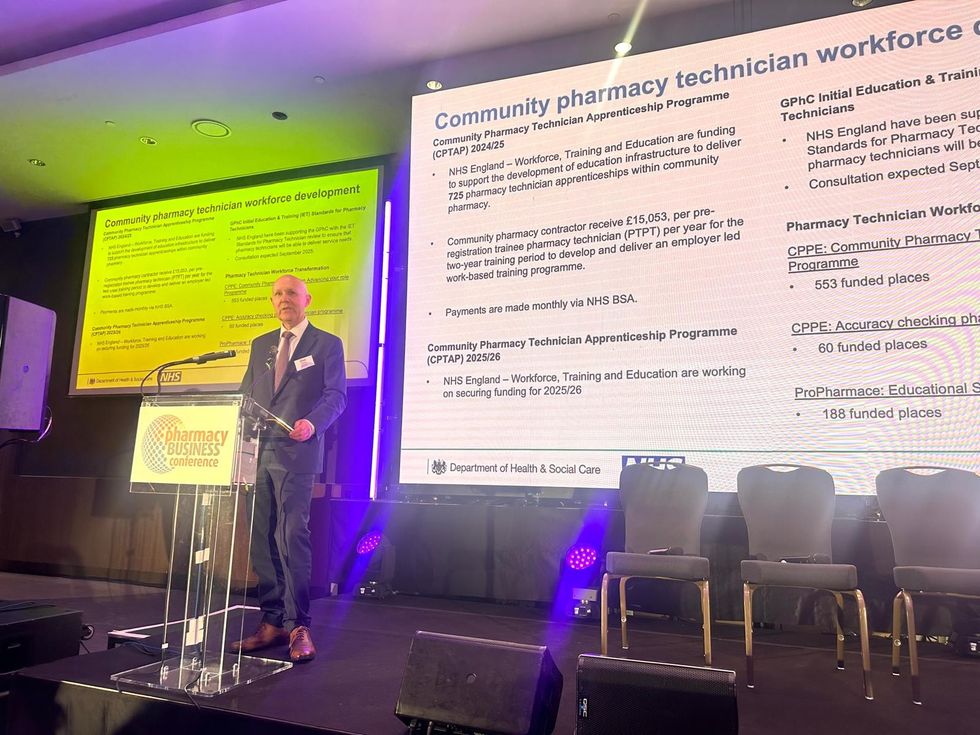 David Webb, chief pharmaceutical officer of NHS England
David Webb, chief pharmaceutical officer of NHS England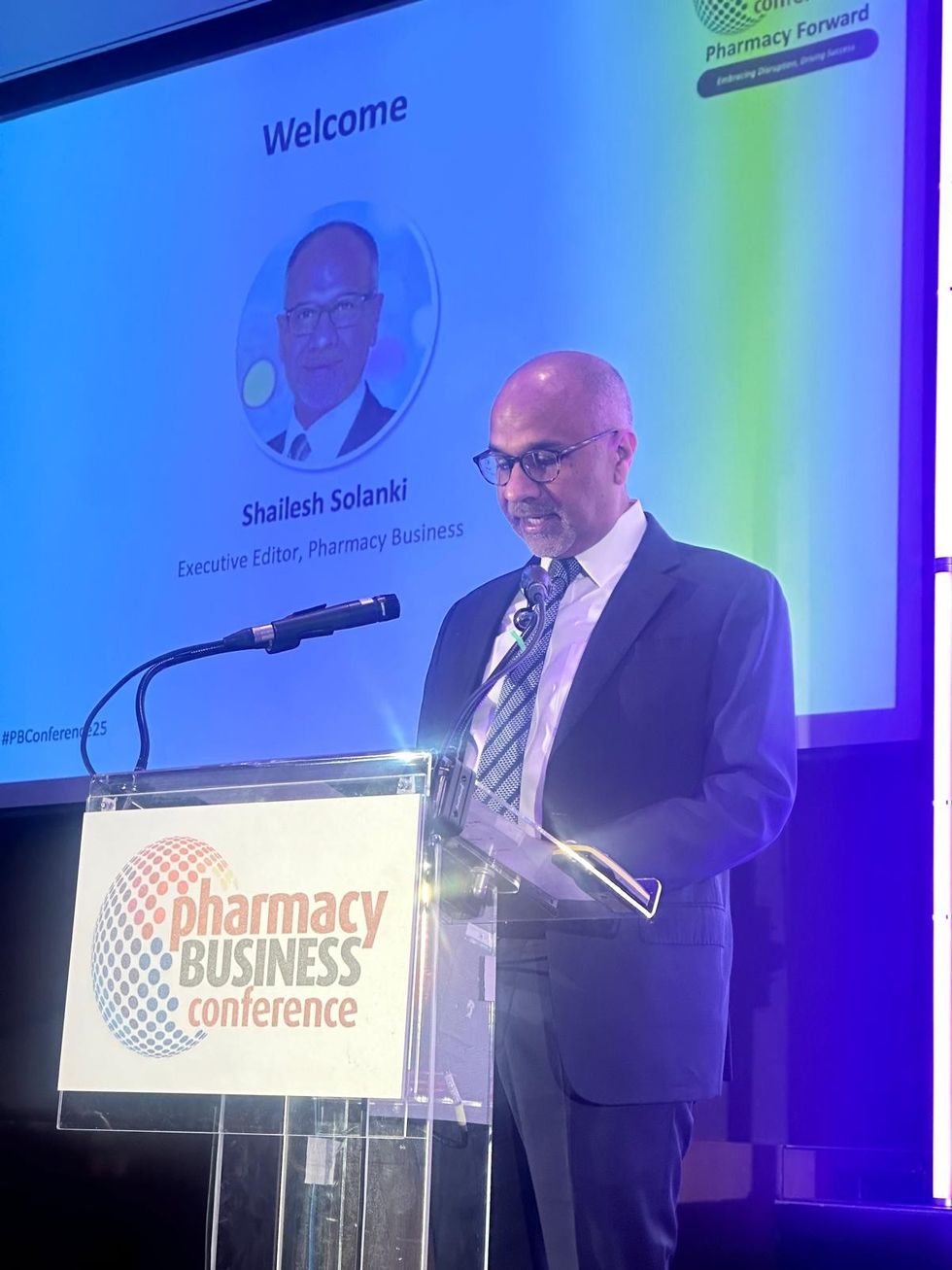 Shailesh Solanki, executive editor of Pharmacy Business
Shailesh Solanki, executive editor of Pharmacy Business L-R: Yasmin Karsan, Pritee Panchmatia and Fin McCaul
L-R: Yasmin Karsan, Pritee Panchmatia and Fin McCaul 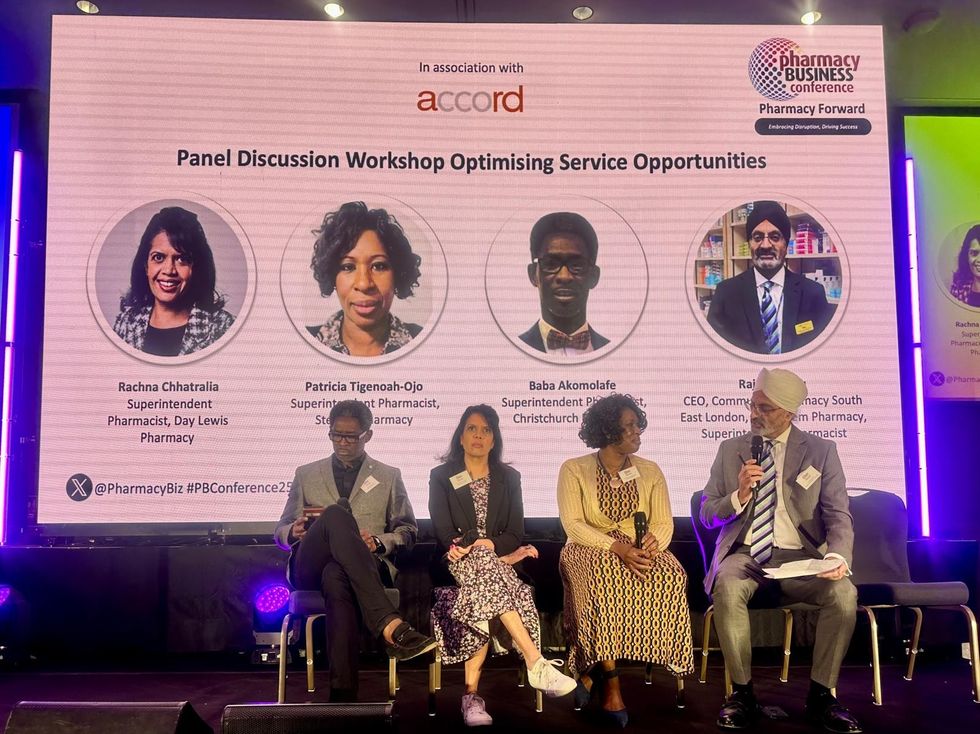 L-R: Baba Akomolafe, Rachna Chhatralia, Patricia Tigenoah-Ojo and Raj Matharu
L-R: Baba Akomolafe, Rachna Chhatralia, Patricia Tigenoah-Ojo and Raj Matharu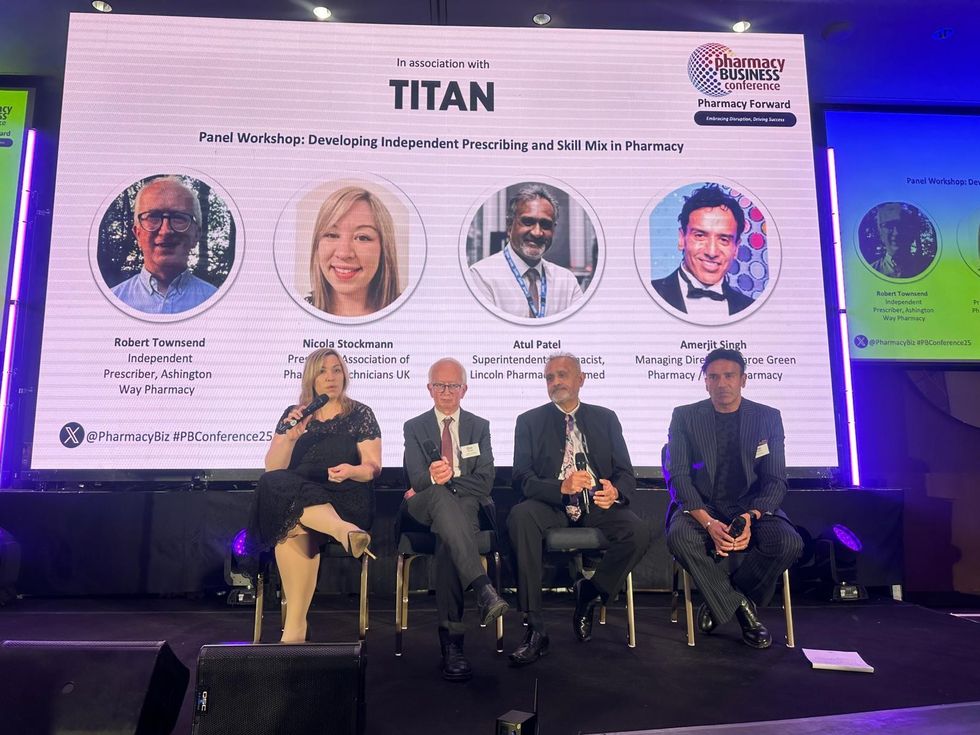 L- R: Nicola Stockmann, Robert Townsend, Atul Patel and Amerjit Singh
L- R: Nicola Stockmann, Robert Townsend, Atul Patel and Amerjit Singh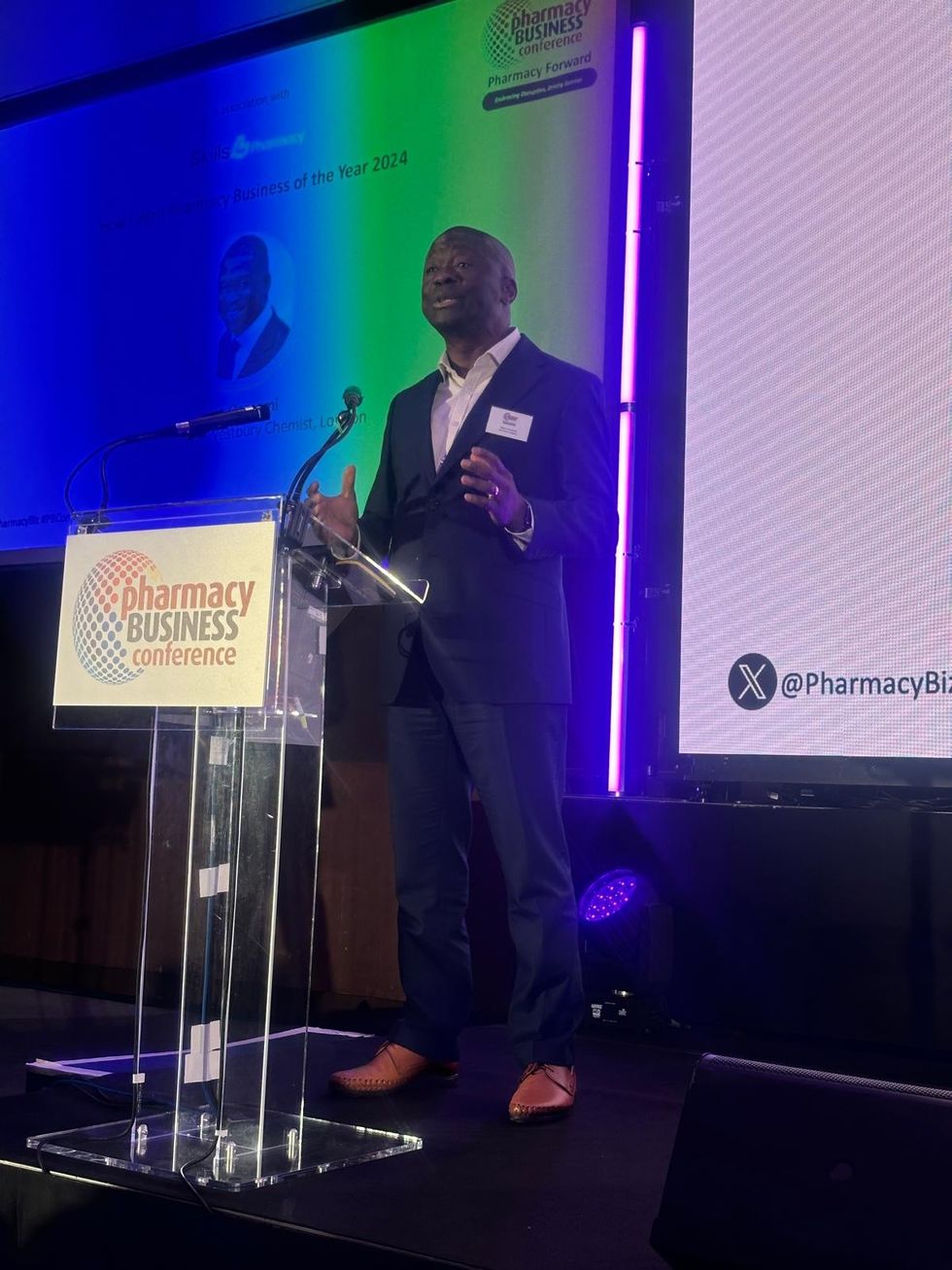 Wole Ososami, lead pharmacist at Westbury Chemist
Wole Ososami, lead pharmacist at Westbury Chemist








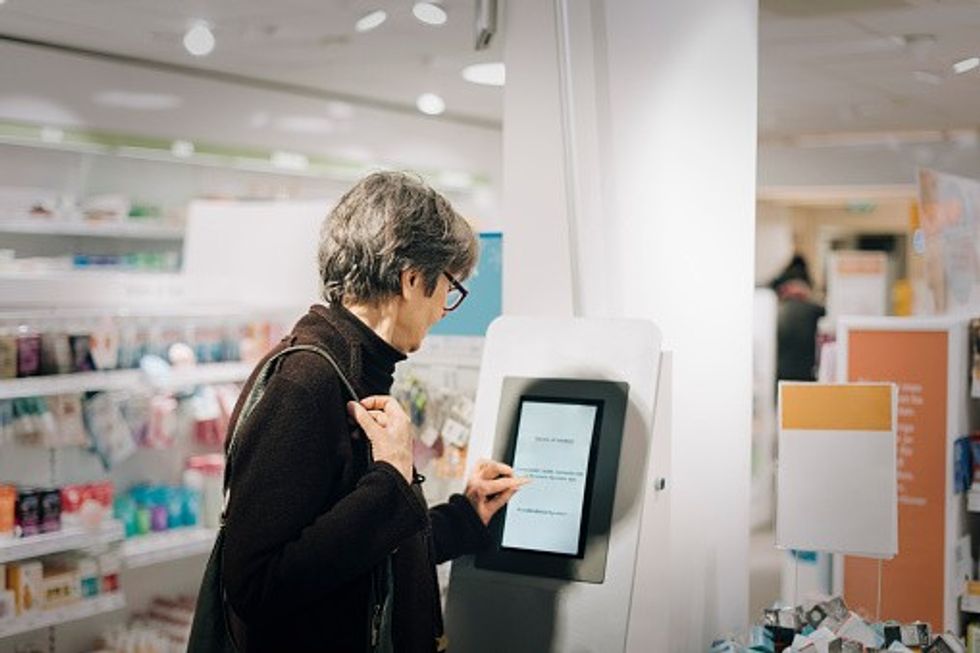 A woman using kiosk at pharmacy store gettyimages
A woman using kiosk at pharmacy store gettyimages  Pharmacist examining commissioning machine in pharmacy gettyimages
Pharmacist examining commissioning machine in pharmacy gettyimages